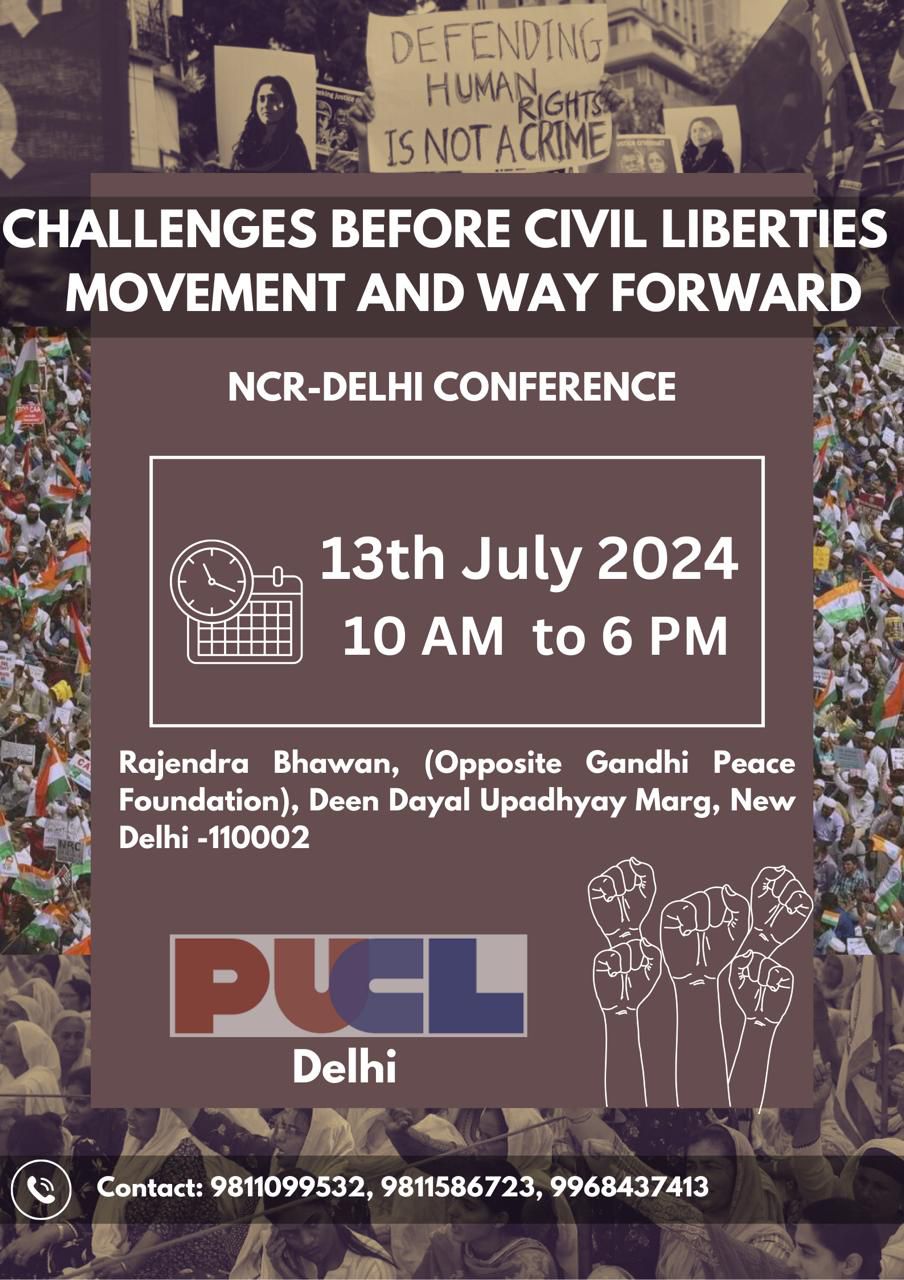Challenges Before the Civil Liberties Movement – Conference report PUCL - Delhi

Over 150 people including lawyers, students, professors, and survivors of state persecution gathered for PUCL Delhi’s Conference today, 13th of July, 2024 at Rajendra Bhavan, New Delhi about the Challenges Before the Civil Liberties Movement and what can be the possible way ahead. There was a tenor of hope and gusto throughout the meeting, and it was clear that a feeling for action is brewing amongst people.
Much was said about the human rights violations pertaining to various arenas, be it the blatant misuse and abuse of the Unlawful Activities and Prevention Act (UAPA) and Prevention of Money Laundering Act (PMLA) or the three newly enacted criminal laws or the ethnic conflict going on in Manipur. The increase in hate crimes, hate speeches, incidents of mob lynchings and crackdown on journalists in recent years has been an issue of grave concern for human rights organisations like ours. We see these as implications of a state which has increasingly gathered police power.
The house noted with concern the gross misuse of central law enforcing agencies like the Enforcement Directorate (ED), CBI, Income Tax Department, who have been armed with draconian powers which are being used to harass the political and ideological opponents of the current regime. Numerous political leaders and activists are languishing in jails under such practice without timely and fair hearing. This has created an atmosphere of anxiety and fear.
The declining conditions of public educational institutions, public health, and the environment were discussed within the ambit of protecting and securing human rights and civil liberties. The compromised independence of the election commission of India, and the need for electoral reforms constituted an area of discussion as well.
The house has resolved to continue this dialogue via similar events with more groups and participants from the civil society and also students and workers organizations spread across the Delhi NCR region. Actionable ideas have been proposed, such as the formation of a fund for lawyers to strengthen the response to human rights violations and the protection of activists and human rights defenders. Consistent discussions will be needed to concretise these ideas.
Further, it was decided that a proposal for a national movement against the draconian UAPA and PMLA laws, along with the repeal of the three new criminal laws, is very much in order.
Given the spirited discussion of the conference, there is much reason to be hopeful for.
However the resolutions made through the discussions in the conference’s three panels will require consistent planning and struggle. It is hoped that various human rights organizations will rise up against the current atmosphere of repression.